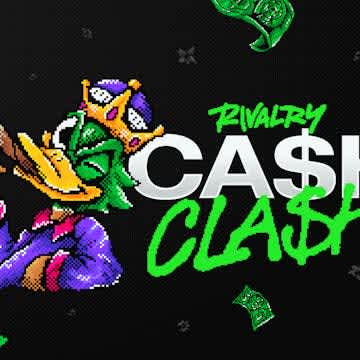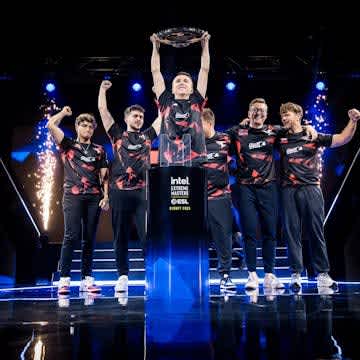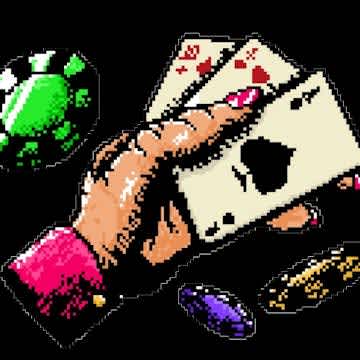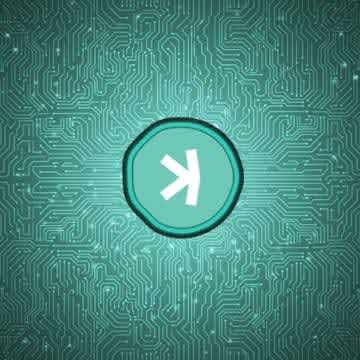Love or hate the Fall Groups format, let’s hope the final one turns out to be a banger
While there are many valid criticisms to be made about the low-stakes repetition of many BLAST Groups events, they still often served as the starting points of fun storylines that continued to percolate throughout the circuit later down the line, and big names unexpectedly falling down to the Showdown always carried its unique sense of fun. With the post-partnered league era just around the corner, here’s hoping for a great sendoff for a flawed but interesting part of BLAST’s repertoire. Here's how we got here.
Remember the BLAST Pro Series?
Stale and stilted as it may be now, it’s worth remembering just how much of a quantum leap the BLAST Premier circuit is compared to the company’s first vision of competitive Counter-Strike, with very different people at the helm having very different ideas. The BLAST Pro Series started out in November 2017 as an interesting alternative and quickly developed into a blemish on the calendar, with an entire event packed into a single weekend featuring round-robin brackets, tied matches at 15-15, simultaneous group stage games, end best-of-ones.
If not for the money and their grasp on Astralis, people would have been quicker to treat these events like the glorified exhibition matches they were, and the only thing that turned out to be a lasting innovation from the original endeavor was sportswashing in lands far away.
Thankfully, the format was canned at the end of 2019, and a genuinely superior product emerged in its wake.
BLAST Premier: what could have been
In retrospect, there was no guarantee that BLAST Premier would turn out as well as it did. The new format ran headfirst into the pandemic and was then forced online for most of the year in a set of cataclysmic developments that completely pulverized Flashpoint. However, it was clear even during the first regular season event that we’ve got a winner on our hands, with a massively improved broadcasting and gaming product.
The group stage, repetitive as it is to guarantee screen time for the partners, hasn’t yet worn out its welcome, and the playoffs actually featured a double-elimination bracket at the time, which I sorely miss to this day.
In fact, you could argue that BLAST Premier was as good as it ever got during its first outing, and some of the wrong lessons were learned from the pandemic period. While the biggest events of the circuit remained online until late 2021, the Showdowns were permanently kept in the virtual realm, somewhat diminishing their competitive value, and definitely damaging the broadcast quality along the way. I never want to look at a shaky low-res webcam in fullscreen for player reactions again, unless COVID-20 rolls around.
Ultimately, the goal to guarantee maximum match and screen time to all partners leads to depressingly low stakes in the group stages. It takes serious effort to get eliminated: in fact, in the Groups event, it is literally impossible to do so, making the whole event just a big seeding party. Inside the party, the first set of group stage matches only serve as seeding themselves as we head into the playoffs to play out near-identical games. The low number (and set nature) of participants also all but guarantees repeat matchups, making it tough to care about an otherwise excellently produced product.
The Finals now also feature a GSL-style group stage with an ESL-style truncated playoff, which feels inferior to a double-elimination bracket in terms of the possible storylines it could generate. (Again, of course, it all but guarantees three series to be played live on air for partner teams since only the bottom finishers are eliminated from the group stage.) Not quite the cauldron of competition it could be.
Small improvements have been made this year at least, with the 12-team partner-exclusive format softly expanding to sixteen, with some fun names and storylines that came along with the change. Now we’ve got Falcons, a team we all love to hate, and Team Spirit, a team with everyone’s favorite donk. GamerLegion and Virtus.pro also add a fun bit of color in playstyles and skill to an event that often ran the risk of running a little stale towards the end.
So, a farewell to BLAST Groups: great broadcasting innovations and a genuine step forward for a tournament organizer, but a concept that is now well worth sunsetting as we head into the brave new world of CS esports. I genuinely like a lot what's been teased for 2025 and am looking forward to seeing how it all shakes out. Here’s hoping we will hopefully look back on this period a few years from now and think, “This was as walled a garden as it ever got,” – but for now, let’s enjoy yet another FaZe vs G2 matchup. Or maybe two. Or three.






